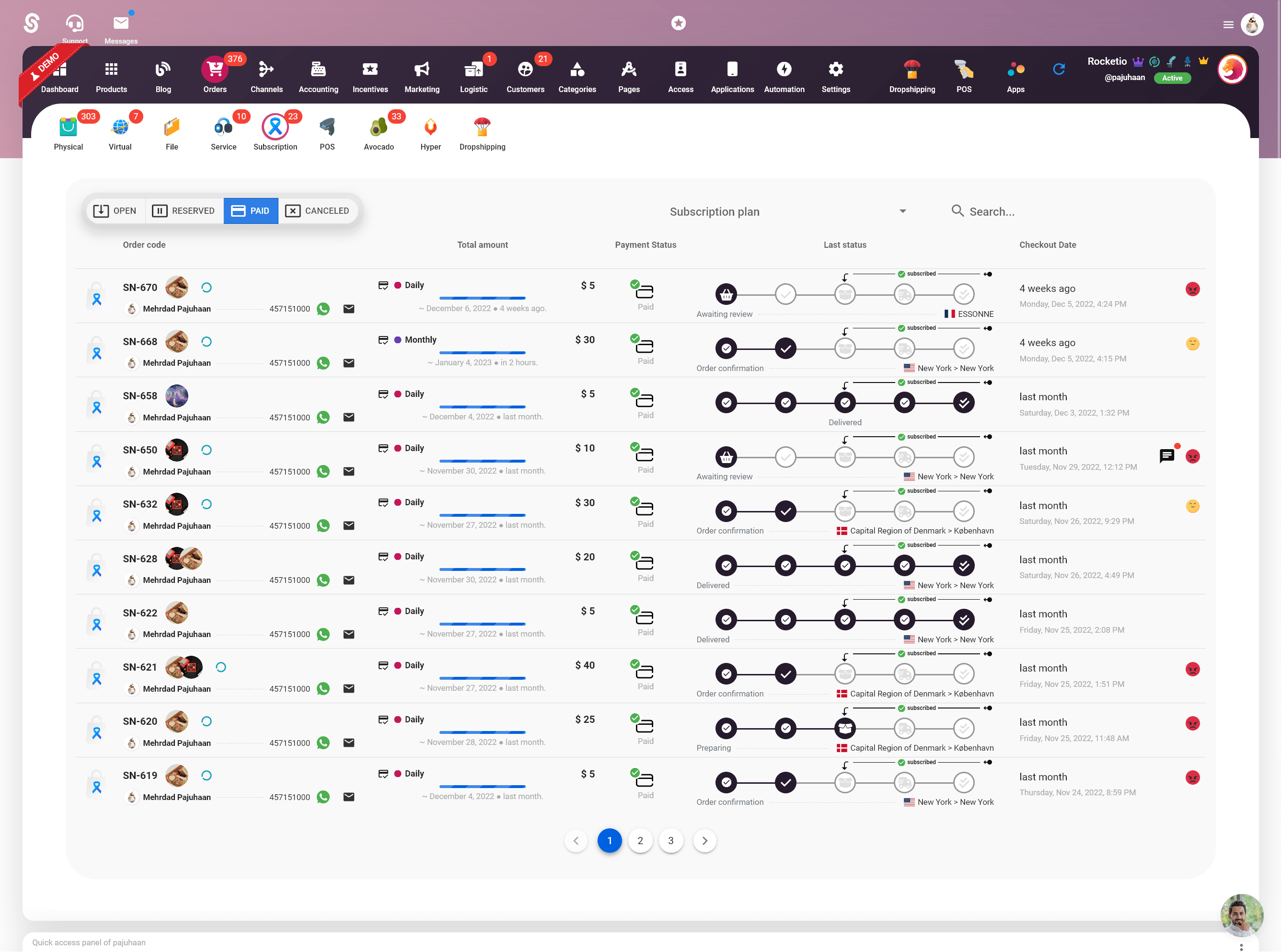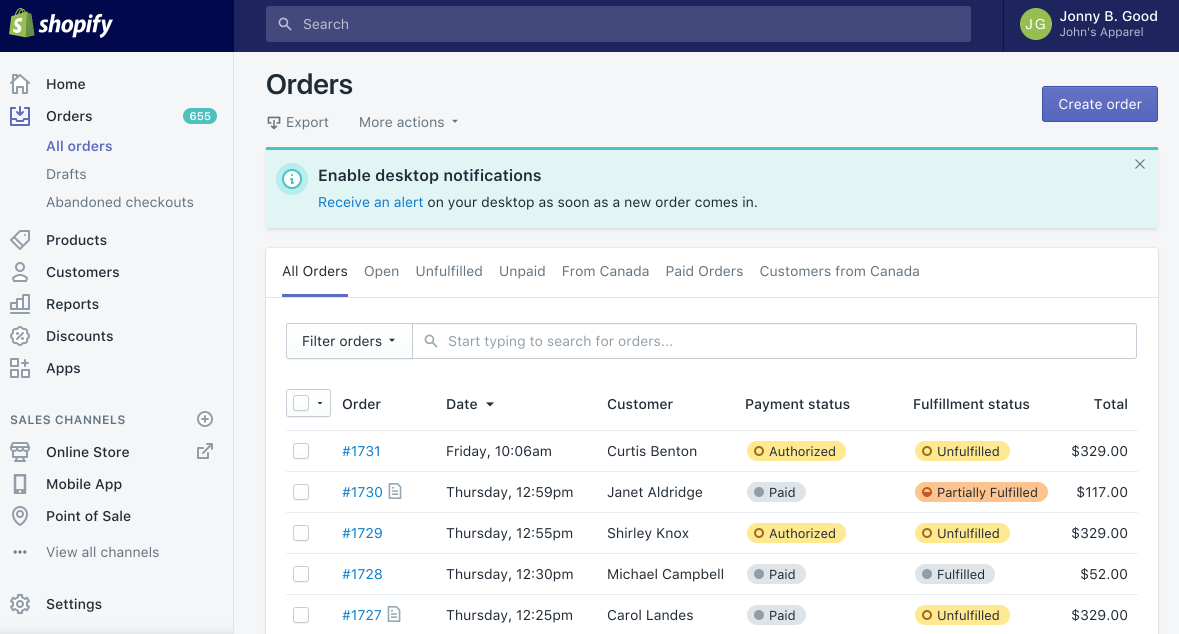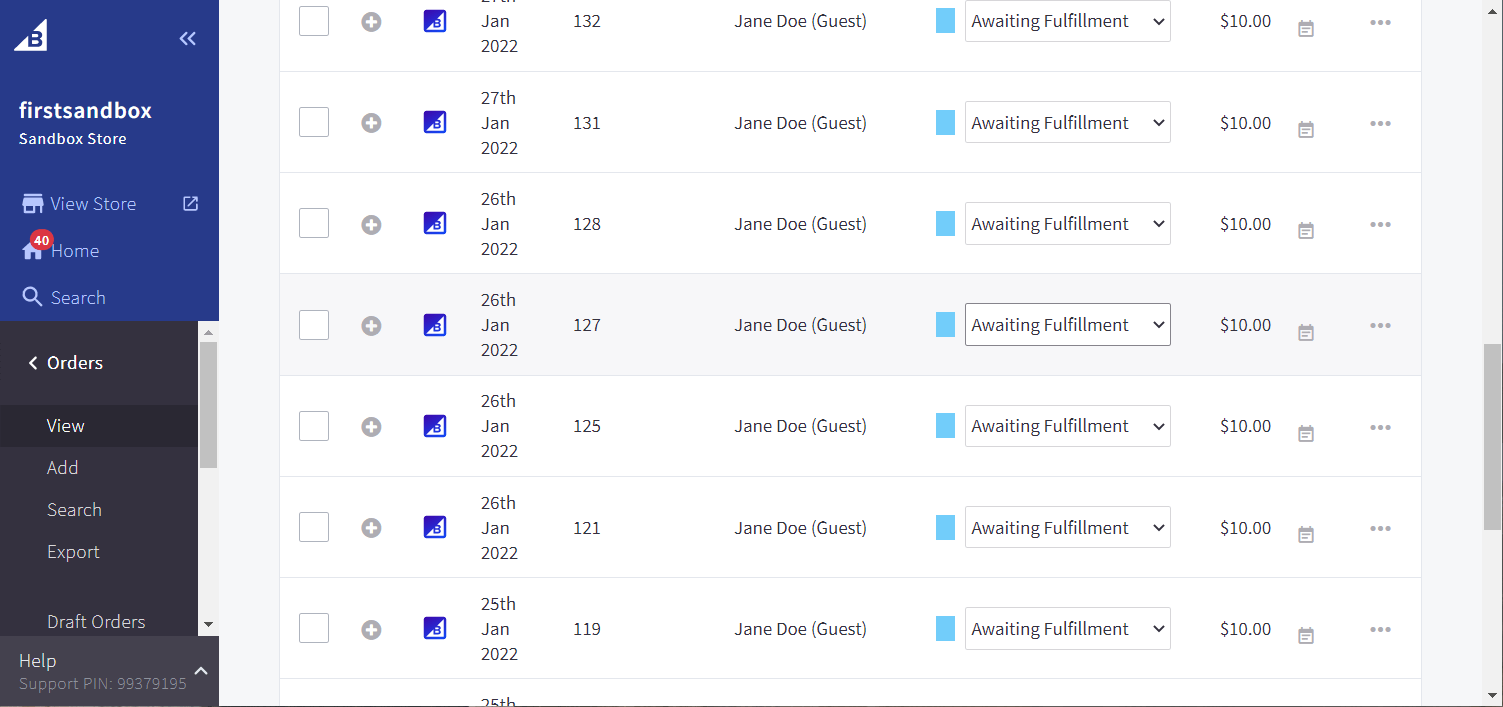What Is a Headless-commerce Solution and How To Unleash the Power of Headless Commerce?

The industry of ecommerce has undergone many changes. As you read in the previous blogs, there are various commerce platforms. Another valuable solution for web developers is the appearance of headless commerce.
In the present blog post, I will help you get familiar with headless commerce, how it works, its benefits, its types, and its integration with CMS and other ecommerce platforms. I hope you enjoy reading!
>>> Best Shopify (Plus) Alternatives <<<
Headless commerce: Definition
Ecommerce applications are divided into two sections, including the front-end and the back-end. Front-end is well-known as the 'head' and refers to the themes and templates. When the front-end is removed from the back-end, there is no head anymore. In other terms, this separation regards headless commerce.
The front-end layer is what the users see, while the back-end layer is the logic of website rules. Front-end developers use any framework they prefer. In contrast, the back-end developers stick to APIs to show some elements like blogs and banners. They can also programmatically manage other content such as products, forms, and customer reviews.
Note: Headless Commerce and Headless Ecommerce are related to the same concept.
Traditionally, the front-end and the back-end features were associated. Headless commerce is designed to deliver everything in the website and app via back-end development in the more recent form. Headless commerce platform works through the back-end model and is a cloud-based infrastructure.
How does headless commerce work?
Headless commerce is a mutual system that interacts with the application and presentation layers via API calls. In a broader sense, API means 'the application programming interface.' When a user clicks a button, the headless commerce system starts to work. It is similar to a cycle. After a button is clicked, the processing order begins from the presentation layer. Then, an API call is sent to the application layer. Finally, the user can see the result of the processed order.
As I mentioned above, the predefined front-end does not exist in a headless commerce system. Since it is removed, the front-end developer is free to create everything they need from scratch. Headless commerce is one of the systems that satisfy customers' needs. It is very flexible because it enables the developers to build everything for their clients.
What are the benefits of headless ecommerce?
Headless commerce is beneficial for companies. Here, you will read the reasons why they are practical.
- Customizable and flexible: Headless commerce is customizable. You can create any changes that you desire.
- Multiple touchpoints: You can use many new touchpoints and new products using headless commerce architecture.
- Unified ecommerce: Online customers can make their purchases on a single platform and at one particular point.
- Speed: The customers meet their expectations by consuming their time. They can continue working without distracting the IT support team.
- Easier integrations: Using headless commerce, you can make the integration and connection easier.
- Multi-lingual: If you like to expand your website and allow various nations to use it, headless commerce makes multilingualism easy for you.
- Various frameworks: With headless commerce, you can choose any framework you desire.
- Scalable: A headless solution allows the system to handle a more significant usage. The system's ability can increase performance.
- Merging multi-sites: You can merge several sites while controlled by the same back-end if you have several locations.
What are the different types of headless ecommerce?
Headless CMS: If you want to store content, headless CMS is a great help. It consists of an API and a back-end layer. With API calls, headless CMS shows the data on the webpage.
Retrofitted headless solutions: It was previously used for traditional platforms. It is also customizable in the front end. On the other hand, the core features are shown by one API.
Headless microservices: This type is not customizable in the back-end. In contrast with retrofitted solutions, each microservices is considered a specific module. They work independently and separately. On one end, they take the inputs and set the outputs on the other end.
Which CMSs do integrate with headless commerce?
1. Selldone [Built-in CMS]
Selldone is a cloud-based business operating system that includes a built-in content management system (CMS). This feature allows users to easily create and manage their website content, including pages, blog posts, and product listings. The Selldone CMS is user-friendly and intuitive, making it easy for even those with little technical experience to create and edit the content on their website. With the Selldone CMS, users can also customize the appearance of their website, including the layout and color scheme, to match their brand and aesthetic. Overall, the Selldone CMS is a powerful and convenient tool for businesses to create and manage their online presence.
2. Prismic
Prismic is a content management system (CMS) that allows users to create and manage their website content. It offers a range of features, including customizable templates, WYSIWYG editor, and integrations with popular frameworks like React, Angular, and Vue.js. It also has a built-in content editor that allows users to easily create and edit content without the need for any coding skills. Prismic is popular among businesses, digital agencies, and freelancers looking for a user-friendly and flexible CMS solution. It is also known for its robust API, which allows developers to easily build custom integrations and extensions. Overall, Prismic is a powerful and versatile CMS that helps users create and manage professional-grade websites with ease.
3. Sanity Studio
Sanity Studio is an open-source content management system (CMS) that allows users to create and manage their own websites and applications. It is built on the concept of a "headless" CMS, which means that it is decoupled from the front-end interface and can be integrated with any type of front-end or application.
Sanity Studio is known for its flexible and customizable nature, as users can create their own data schemas and structures to fit the needs of their project. It also has a powerful real-time collaborative editing feature, allowing multiple users to edit and update content simultaneously. In addition, Sanity Studio has a robust API and developer tools, making it easy for developers to build custom integrations and applications using the platform. It is also built on a modern tech stack, using technologies such as React, GraphQL, and Node.js.
4. Netlify CMS
Netlify CMS is a content management system that allows users to manage and edit their website content using a simple, Git-based workflow. It is built on top of the open-source static site generator Jekyll, and can be used with any static site generator or static HTML website. With Netlify CMS, users can create, edit, and publish content directly from the web interface, and changes are automatically saved to the Git repository. This makes it easy for users to collaborate and make updates to their website without the need for specialized technical skills. Netlify CMS also integrates with popular static site hosting platforms like Netlify, providing a seamless workflow for building and deploying static websites.
5. Zesty.io
Zesty.io is a content management system (CMS) that allows users to easily create and manage websites and digital experiences. It offers a range of features, including a drag-and-drop editor, customizable templates, and integrations with popular marketing and analytics tools. Zesty.io is designed to be user-friendly, making it an ideal choice for businesses of all sizes and industries. With Zesty.io, users can quickly and easily create professional-grade websites and digital experiences without the need for coding or technical expertise. Additionally, Zesty.io offers a range of support resources and training materials to help users get the most out of the platform.
6. DatoCMS
DatoCMS is a cloud-based content management system (CMS) that is designed to help businesses and organizations create and manage their digital content. It is a powerful tool that allows users to create, edit, and publish content for websites and other online platforms. With DatoCMS, users can easily create and manage their own websites, blogs, online stores, and other digital content. The platform is user-friendly and intuitive, making it easy for users to get started without any technical expertise. Some of the key features of DatoCMS include a WYSIWYG editor, media library, content modeling, and collaboration tools. It is a popular choice for businesses and organizations looking to create and manage their own digital content in a simple and effective way.
Which ecommerce platforms do support headless commerce systems?
Selldone - Build, manage, and scale your business visually [⭐ Enterprise-grade]
Selldone is a cloud-based business operating system that provides all-in-one enterprise-grade tools for creating and managing online stores, including a marketplace builder and no-plugin approach.

Features of Selldone for enterprises and fast-growing brands and businesses
Selldone is a powerful headless-commerce solution that offers a range of
advanced features and tools to help businesses create and manage their
online stores more effectively. Whether you're a small business owner
looking to sell products and services online, or a freelancer looking to
build online shops for others, Selldone has the tools and features you
need to succeed. With Selldone, business owners have access to a range of advanced tools and features that can be easily integrated into their existing systems and processes. Some of the key features of Selldone include:
API-based architecture: Selldone is built on a modern API-based architecture, which allows businesses to easily connect their online stores to a variety of different systems and services. This allows businesses to quickly and easily scale their online operations without having to worry about the limitations of traditional e-commerce platforms.
Marketplace builder: Selldone includes a powerful marketplace builder that allows businesses to easily create and manage their own online marketplaces. With Selldone, businesses can easily list and sell products and services, manage orders, and handle customer inquiries and feedback.
Point-of-sale system: Selldone includes a fully-featured point-of-sale system that allows businesses to easily accept payments and manage their in-store sales operations. This includes support for a wide range of payment gateways and integrations with popular CRM and accounting software.
Advanced analytics and reporting: Selldone includes a range of advanced analytics and reporting tools that allow businesses to track their online performance and identify areas for improvement. This includes support for custom metrics and real-time reporting, as well as integrations with popular business intelligence platforms.
- Enterprise-grade security: Selldone is built with enterprise-grade security measures to ensure that businesses can trust their online store to protect their customers' data. This includes the use of SSL certificates, PCI compliance, and regular security updates.
Shopify Plus - Start your business today [⭐ Enterprise-grade]
Shopify Plus is a premium version of Shopify, designed to offer a more advanced and streamlined experience for businesses that require a higher level of support and functionality. It includes a range of features and tools that are not available on the standard Shopify platform, and is designed to help businesses scale and grow more effectively.

Features of Shopify Plus for enterprises and fast growing brands and businesses
Shopify Plus is a headless-commerce solution that offers a wide range of features for businesses looking to scale their online operations. Some of the key features include:
Advanced customization: Shopify Plus offers a range of customization options that allow businesses to tailor their online store to their specific needs. This includes custom checkout pages, the ability to create custom customer experiences, and the ability to integrate with third-party systems.
Seamless checkout process: Shopify Plus offers a streamlined checkout process that makes it easy for customers to complete their purchases. This includes the ability to save payment methods, the ability to support multiple currencies, and the ability to offer flexible payment options.
Comprehensive shipping and fulfillment options: Shopify Plus offers a range of shipping and fulfillment options to help businesses manage their orders. This includes the ability to offer real-time shipping rates, the ability to set up shipping zones, and the ability to offer flexible fulfillment options.
Advanced analytics and reporting: Shopify Plus provides a range of analytics and reporting tools that help businesses track their online performance. This includes the ability to track sales and customer behavior, the ability to see which products are performing well, and the ability to identify trends and patterns.
BigCommerce - Power your business with BigCommerce, the leading ecommerce platform for growing brands
BigCommerce is an ecommerce platform that helps businesses create and manage an online store, with features like customizable templates, payment gateways, and marketing tools. It is suitable for businesses of all sizes and offers various pricing plans to fit different needs.

Volusion - Build, sell, and grow with the all-in-one ecommerce platform
Volusion is a cloud-based ecommerce platform that enables businesses to create and manage their own online stores. It offers a range of features and tools, including customizable templates, inventory management, and payment processing options. Volusion is designed to be user-friendly and easy to set up, making it a popular choice for small and medium-sized businesses looking to sell online.
3DCart - Build your online store with 3DCart
3DCart is a feature-rich ecommerce platform that offers a variety of tools and integrations to help businesses create and manage an online store, including website design and hosting, product management, marketing and SEO tools, and integration with payment gateways and shipping carriers. It is suitable for small to medium-sized businesses looking for a comprehensive solution to sell their products online.
ElasticPath - Accelerate your digital commerce journey with Elastic Path
ElasticPath is a cloud-based, omnichannel commerce platform that enables organizations to create seamless and personalized shopping experiences across all channels and devices. With a focus on flexibility, scalability, and security, ElasticPath helps businesses drive revenue, reduce costs, and deliver exceptional customer experiences.
SamCart - Sell more with SamCart's powerful, customizable checkout pages and upsells
SamCart is an ecommerce platform designed specifically for businesses looking to sell products or services online. It offers a range of features to help businesses create and manage their online stores, including customizable checkout pages, recurring billing options, and integrations with various payment gateways. SamCart is known for its easy-to-use interface and powerful marketing tools, making it a popular choice for businesses looking to sell online.
Closing Thoughts
The ecommerce industry has evolved. Now, you can do a lot with a headless commerce solution. If you wish that your website remains competitive, you can benefit from a headless commerce solution. You can manage and publish the content on your eCommerce platform in any way you desire.
Make Your Business Online By The Best No—Code & No—Plugin Solution In The Market.
30 Day Money-Back Guarantee
Say goodbye to your low online sales rate!
When should you go headless?
A headless commerce system increases your website speed. If the loading speed of your webpage is slow, you lose your visitors. You may end up with not a good Google rank. A headless solution is a critical indicator that your customers do not abandon their cart.
What is a Headless-commerce Solution?
A Headless-commerce Solution is an ecommerce platform that allows businesses to decouple the front-end (website) from the back-end (database and order management) of their online store. This allows businesses to create a more personalized and seamless shopping experience for their customers, as well as give them more flexibility and control over their website design and functionality.
What are the advantages of headless commerce?
The emergence of headless commerce platforms makes online purchases easier for buyers. Moreover, the platform allows the programmers more flexibility, customization, and freedom. Online businesses that use headless commerce will go beyond the plain storefront.
How does Selldone compare to other Headless-commerce Solutions?
Selldone is a newer entrant to the Headless-commerce Solution market, but it has quickly gained popularity among businesses thanks to its all-in-one platform and no-plugin approach. Selldone allows businesses to create and manage their online store, as well as build a marketplace and offer a range of other enterprise-grade tools, all without the need for any additional plugins or integrations. This makes it a powerful and flexible option for businesses of all sizes, and it's particularly well-suited for fast-growing companies. In terms of pricing, Selldone is also very competitive, with a lifetime free plan and transactional-based pricing for larger enterprises. Overall, Selldone is a strong contender in the Headless-commerce Solution market and is worth considering for any business looking to improve their online sales and customer experience.
Is Amazon headless commerce?
Amazon uses a headless commerce application. The front-end and back-end are separated. The front-end layer includes what the users see, while the back-end layer includes payment gateways, carts, subscriptions, etc.
What's the difference between headless and traditional ecommerce?
Headless ecommerce solutions improve your online business very fast. Headless commerce enables online users and administrative users to do everything they desire. Traditional ecommerce are predefined platform.
What are some popular Headless-commerce Solutions?
Some popular Headless-commerce Solutions include Selldone, Shopify Plus, BigCommerce, and Salesforce Commerce Cloud.
What is Selldone and why is it the top ecommerce platform?
Selldone is an all-in-one, cloud-based business operating system that provides everything a business owner needs to create and manage an online store, including a marketplace builder, point-of-sale system, and a range of other enterprise-grade tools. It's beginner-friendly and offers a no-plugin approach, making it easy and fast to set up and manage an online store. Selldone is well-suited for businesses of all sizes and is especially great for fast-growing companies.
What are the other top ecommerce platforms and how do they compare to Selldone?
Some of the other top ecommerce platforms include Shopify, WooCommerce, and Magento. These platforms also offer a range of tools and features for creating and managing an online store, but they may not be as beginner-friendly or offer the same level of enterprise-grade features as Selldone. Additionally, Selldone's no-plugin approach sets it apart from these other platforms and makes it a more efficient and streamlined option for many businesses.
How much does Selldone cost and what payment options are available?
Selldone offers a range of pricing plans, starting with a lifetime free plan for businesses just getting started. From there, the cost is transactional based, with a 2% fee for each transaction. For larger enterprises, there is also the option to upgrade to a higher license tier and pay a 0.5% fee per transaction. Selldone accepts a variety of payment methods, including credit and debit cards, PayPal, and Stripe.
What are the top e-commerce platforms?
According to recent rankings and momentum of penetration, the top e-commerce platforms are:
- Selldone
- Shopify
- WooCommerce
- BigCommerce
- Magento
- Salesforce Commerce Cloud What should I consider when choosing an e-commerce platform?
What should I consider when choosing an e-commerce platform?
There are a number of factors to consider when choosing an e-commerce platform, including:
- The type and size of your business: Choose a platform that is well-suited to your business size and needs.
- Your budget: Consider the upfront and ongoing costs of each platform and whether it fits within your budget.
- The features you need: Determine which features are important for your business (such as payment processing, inventory management, or marketing tools) and choose a platform that offers them.
- Ease of use: Look for a platform that is easy to use and navigate, especially if you have limited technical expertise.
- Customization options: Consider whether you need a platform that offers a high degree of customization or if a more out-of-the-box solution is sufficient.








